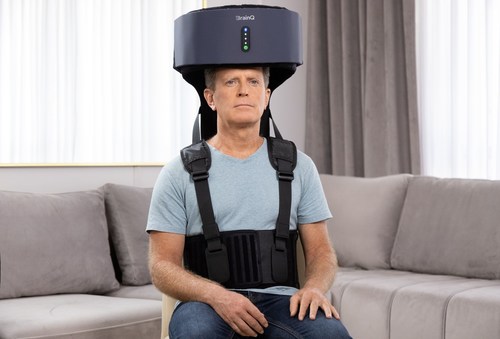In case you want to join. Doesn't say whether this is TMS or one of the tDCS types so no clue what prior research this is following. I wouldn't consider this a wearable device.
Brooks Rehabilitation participates in national stroke recovery trial using breakthrough technology
JACKSONVILLE, Fla., Sept. 22, 2022 /PRNewswire/ -- Brooks Rehabilitation's first participant in the national stroke recovery trial, EMAGINE, has just completed study participation. The randomized, double-blind study tests whether a non-invasive, wearable device that delivers an electromagnetic field to brain networks can reduce disability and improve recovery following moderate to severe ischemic stroke.
Brooks is one of up to 20 research and medical institutions in the United States who have been selected to participate in this pivotal study, with Clinical Research Scientist and Director of Neuromuscular Research, Emily Fox, PT, DPT, PhD, leading the charge as Site Principal Investigator at Brooks.
The portable and user-friendly device, which received FDA Breakthrough Device Designation, is designed to accompany participants throughout their recovery journeys, beginning as early as acute hospitalization, and moving with them to the inpatient rehab facility and eventually home. The EMAGINE study allows participants to use the investigational therapy from their homes with the oversight of a trained caregiver. A study team member joins therapy sessions periodically using a remote computer platform.
"It has been such a pleasure collaborating with Dr. Fox and the research team to determine how the stroke program in the hospital can support the EMAGINE research study. It is wonderful when research and operations can work together to ensure patients have access to opportunities like participating in this trial," said Amanda Osborne, PT, MBA, Vice President of Operations and Administrator for the Brooks Rehabilitation Hospital - University Campus.
The technology utilizes explanatory machine learning to extract biological features found in brainwaves. These features are then used to target networks in the brain via a low-intensity, frequency-tuned electromagnetic field therapy with the goal of facilitating neuro-recovery. The therapy is intended to be used in combination with the current standard of care in physical or occupational therapy.
"Working with industry partners to conduct research offers an outstanding opportunity for Brooks patients," explains Dr. Fox, Site Principal Investigator. "I have been particularly excited about this clinical trial because of the potential advancements in post-stroke rehabilitation. The focus on innovative technology and rehabilitation that transitions from the hospital to the home allows us to support patients and caregivers throughout their recovery."
Stroke is a leading cause of disability in the US and around the world. Every year, one in four people will suffer from a stroke in the US, according to the Centers for Disease Control and Prevention, creating a significant burden on their families and friends, and society as a whole.
System Medical Chief Officer at Brooks, Trevor Paris, M.D., FAAPMR, is a great supporter of innovative solutions in rehabilitation.
"Brooks has a long history of providing rehabilitation to patients with stroke and is always looking for cutting-edge technologies that can enhance our patients' outcomes. Participation in the EMAGINE trial is another step in that quest to enable our patients to achieve their highest potential. We see participation in this national trial as a way to not only help our community of stroke survivors, but potentially improve the lives of stroke patients across the country," he said.
The study is funded by BrainQ, the technology company that developed the investigational device.
"With their notable and innovative approach to stroke care and dedication to community outreach, Brooks is a true partner in furthering our mission to redesign what recovery looks for stroke victims," stated Yotam Drechsler, CEO of BrainQ. "We're honored to be working together."
The EMAGINE stroke recovery trial will enroll 150 randomized subjects nationwide 4-21 days following a stroke. Trial participants will undergo 45 sessions over a total of 9 weeks, 5 times a week. Each session will last for 60 minutes.
Eligible participants will be identified
through Brooks Rehabilitation, and recruitment is now open. For more
information, visit the EMAGINE website.

No comments:
Post a Comment